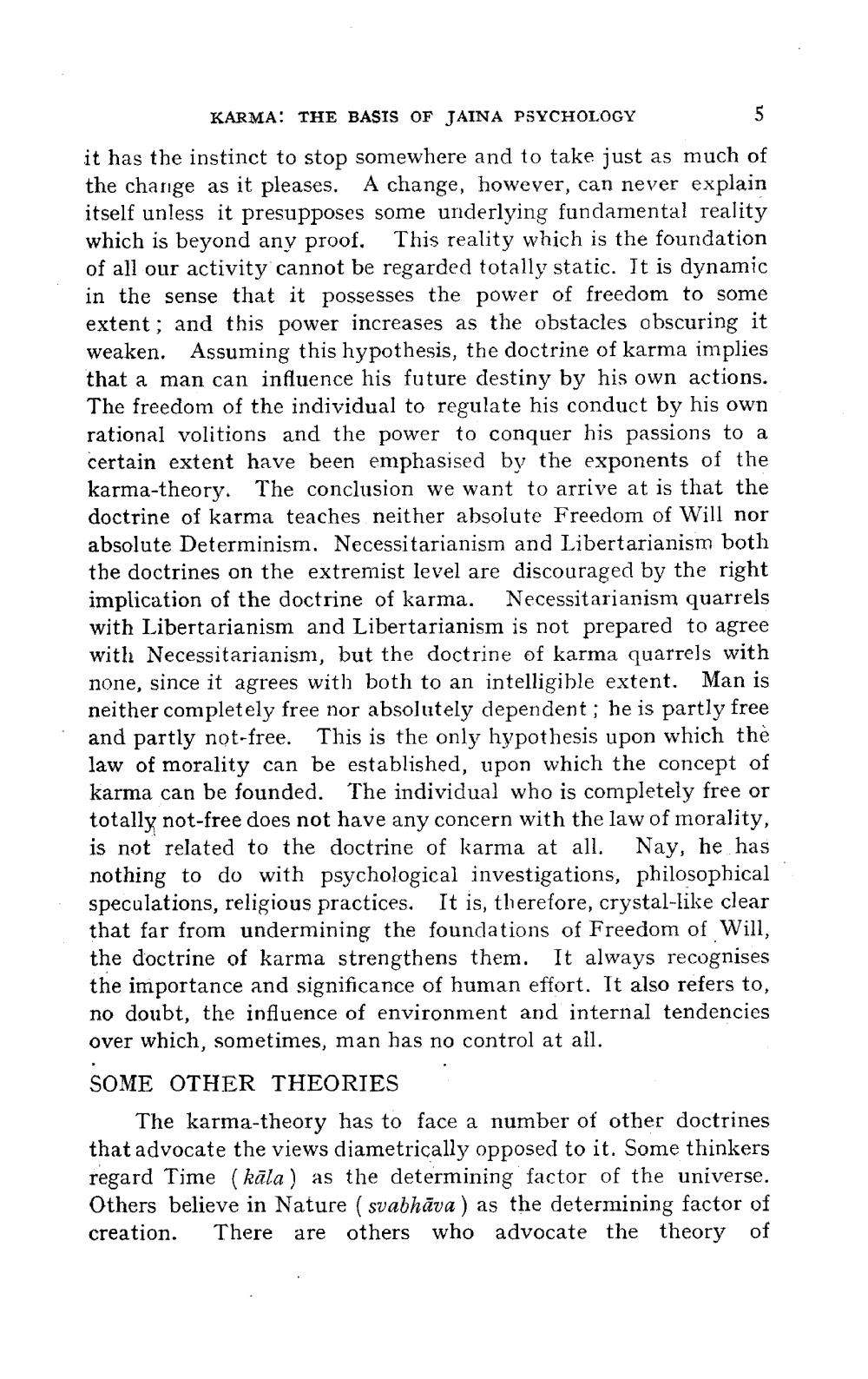________________
KARMA: THE BASIS OF JAINA PSYCHOLOGY
it has the instinct to stop somewhere and to take just as much of the charge as it pleases. A change, however, can never explain itself unless it presupposes some underlying fundamental reality which is beyond any proof. This reality which is the foundation of all our activity cannot be regarded totally static. It is dynamic in the sense that it possesses the power of freedom to some extent; and this power increases as the obstacles obscuring it weaken. Assuming this hypothesis, the doctrine of karma implies that a man can influence his future destiny by his own actions. The freedom of the individual to regulate his conduct by his own rational volitions and the power to conquer his passions to a certain extent have been emphasised by the exponents of the karma-theory. The conclusion we want to arrive at is that the doctrine of karma teaches neither absolute Freedom of Will nor absolute Determinism. Necessitarianism and Libertarianism both the doctrines on the extremist level are discouraged by the right implication of the doctrine of karma. Necessitarianism quarrels with Libertarianism and Libertarianism is not prepared to agree with Necessitarianism, but the doctrine of karma quarrels with none, since it agrees with both to an intelligible extent. Man is neither completely free nor absolutely dependent; he is partly free and partly not-free. This is the only hypothesis upon which the law of morality can be established, upon which the concept of karma can be founded. The individual who is completely free or totally not-free does not have any concern with the law of morality, is not related to the doctrine of karma at all. Nay, he has nothing to do with psychological investigations, philosophical speculations, religious practices. It is, therefore, crystal-like clear that far from undermining the foundations of Freedom of Will, the doctrine of karma strengthens them. It always recognises the importance and significance of human effort. It also refers to, no doubt, the influence of environment and internal tendencies over which, sometimes, man has no control at all. SOME OTHER THEORIES
The karma-theory has to face a number of other doctrines that advocate the views diametrically opposed to it. Some thinkers regard Time (kāla) as the determining factor of the universe. Others believe in Nature ( svabhāva ) as the determining factor of creation. There are others who advocate the theory of




